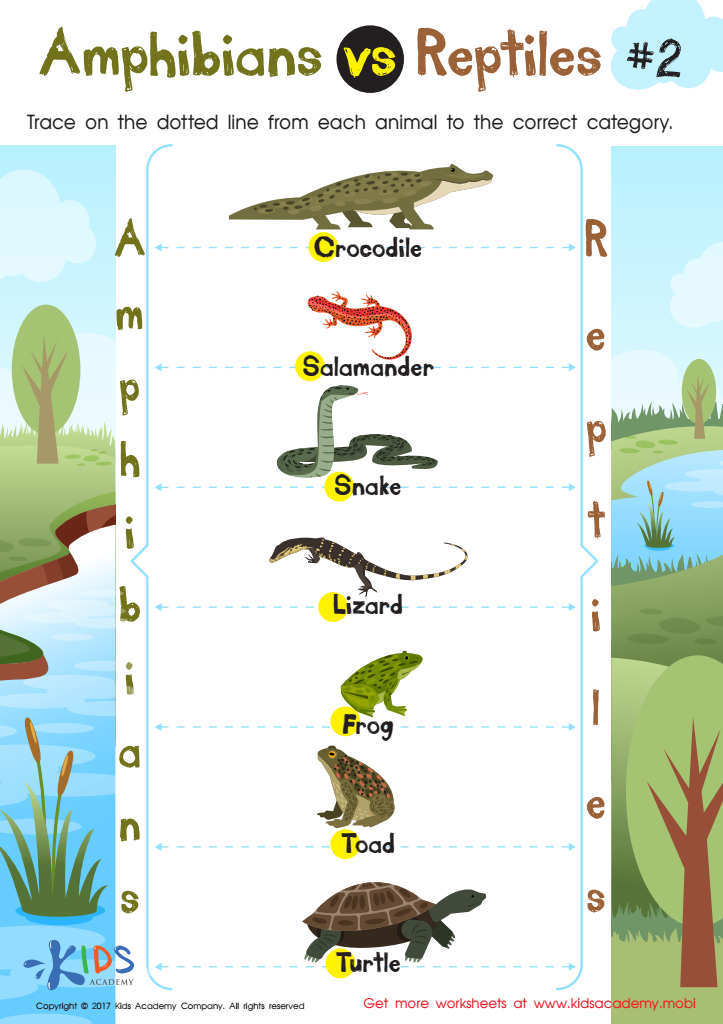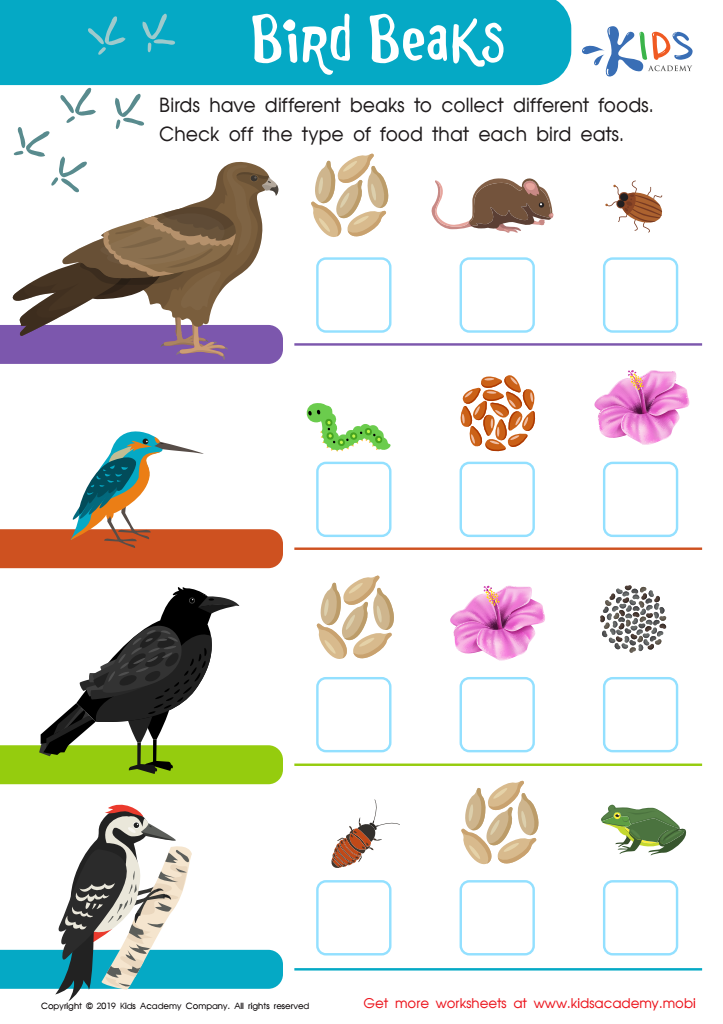Classification skills Science Worksheets for Ages 5-8
5 filtered results
-
From - To
Unlock your child's potential with our "Classification Skills Science Worksheets for Ages 5-8." These engaging, printable worksheets are tailor-made to help young learners grasp essential classification concepts in a fun and interactive manner. From sorting objects by size, color, shape, to understanding categories in nature and everyday life, our worksheets seamlessly blend education with play. Designed by experts, they will bolster your child's observational skills, critical thinking, and cognitive development. Perfect for classroom support and at-home practice, give your child a head start in science by building a solid foundation in classification skills today!


Matter: Assessment 1 Worksheet


Amphibians vs Reptiles Worksheet for 3rd Grade


Bird Beaks Worksheet


Animals and Plants: Assessment 2 Worksheet


Space: Assessment 2 Worksheet
Parents and teachers should give significant attention to the development of classification skills in children aged 5-8, as these foundational abilities play a crucial role in cognitive development and academic success. Classification, the ability to group objects based on shared characteristics, fosters critical thinking and problem-solving abilities. By learning to classify, children enhance their observation skills, noticing similarities and differences that are essential for scientific inquiry.
For young learners, classification activities make abstract concepts concrete. For instance, sorting leaves by shape or color not only touches on biological concepts but also introduces math skills like sorting and pattern recognition. These activities encourage curiosity and a structured way of thinking about the world, leading to better assimilation of more complex scientific concepts as they grow.
Additionally, honing classification skills early lays the groundwork for literacy and numeracy. In literacy, recognizing letter patterns or categorizing words by function boosts reading and writing proficiency. Numerically, classifying objects helps in understanding groups and sets, critical for grasping basic arithmetic and data analysis.
Ultimately, engaging children in classification tasks nurtures lifelong learning traits: keen observation, critical analysis, and systematic organization. By emphasizing these skills in formative years, parents and teachers not only bolster academic abilities but also cultivate inquisitive, analytical, and organized thinkers poised for future success.
 Assign to My Students
Assign to My Students



















